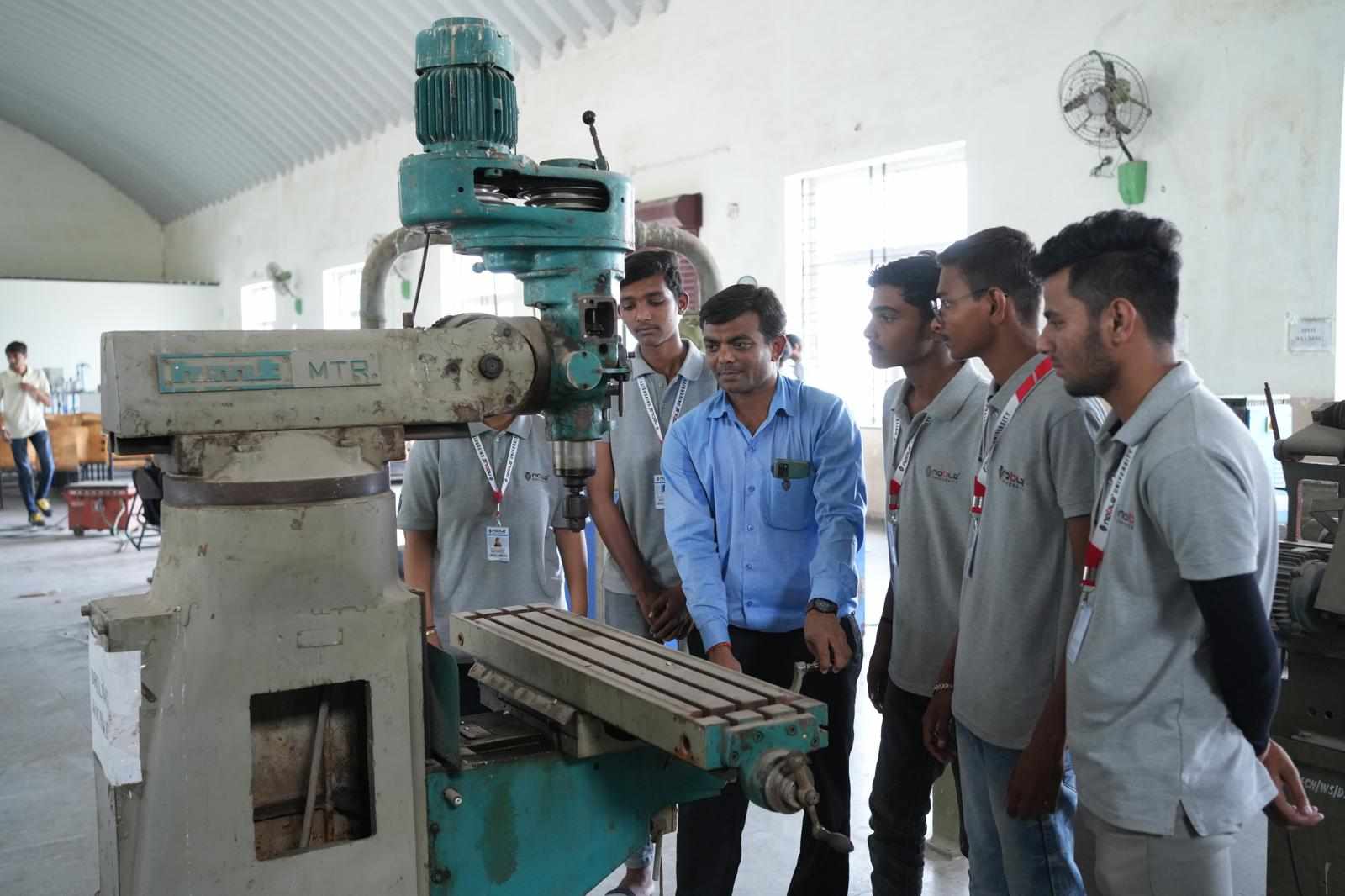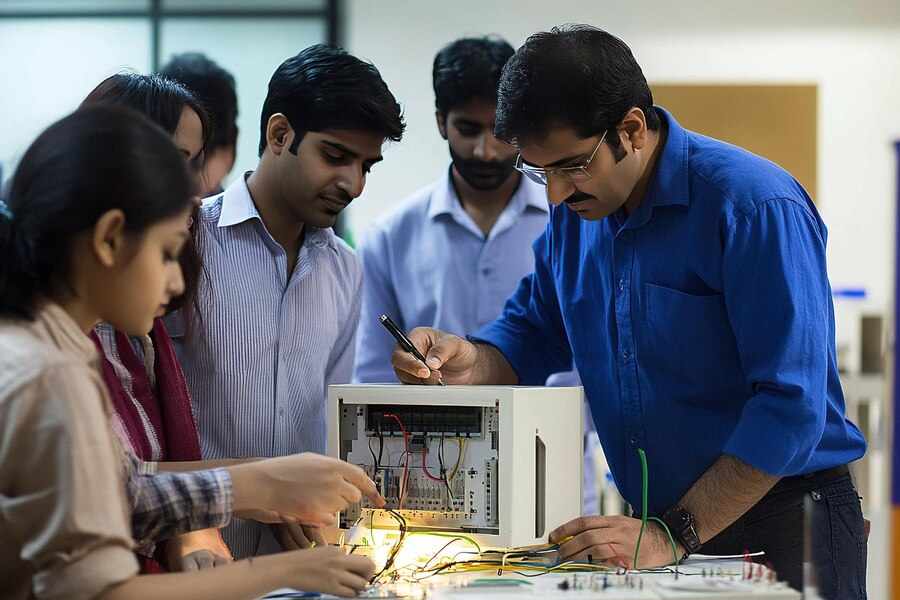
Choosing the right career path after completing the 12th grade can be overwhelming. For students interested in construction, infrastructure, and design, civil engineering is a great field to explore. However, one major decision they face is whether to pursue a Diploma in Civil Engineering or a full-fledged engineering degree. While both have their advantages, a diploma offers several unique benefits that can help students kickstart their careers earlier and more affordably. Let's explore why a diploma might be the better option over a full engineering degree.
1. Faster Entry into the Workforce
One of the biggest advantages of pursuing a Diploma in Civil Engineering is the shorter duration compared to a full engineering degree.
A diploma typically takes about three years to complete, whereas a full engineering degree requires at least four years. This means that diploma graduates can start working and gaining practical experience a year earlier than their degree counterparts. This early exposure helps them develop real-world skills and build a strong professional network.
Another advantage of this early workforce entry is financial independence. Instead of waiting for four years to complete a degree, diploma holders can start earning earlier, reducing the financial burden on themselves and their families. This makes it an ideal choice for students who want to become self-reliant quickly.
Additionally, many industries, especially in construction and infrastructure, value experience just as much as education. A diploma holder who starts working early may have an edge over degree holders with little to no experience.
2. Cost-Effective Education Option
Higher education can be expensive, and not every student can afford the fees of a full four-year engineering degree.
A Diploma in Civil Engineering is a much more cost-effective option, making quality education accessible to a wider range of students. The tuition fees for diploma programs are generally lower than those of full engineering degrees, which significantly reduces the financial strain on students and their families.
Apart from tuition fees, students also save money on living expenses since the course duration is shorter. This allows them to enter the workforce earlier and start earning, reducing the need for student loans or financial support from their families.
Scholarships and financial aid are also available for diploma programs, making it an even more attractive option. This affordability factor ensures that students from all economic backgrounds can pursue a career in civil engineering without worrying about excessive debt.
3. Hands-on Learning and Practical Skills
The Faculty of Engineering in diploma programs focuses heavily on practical learning rather than just theoretical knowledge.
Diploma students spend a significant portion of their coursework engaged in lab work, field training, and real-world projects. This hands-on approach helps them understand how to apply engineering concepts in practical scenarios, making them job-ready upon graduation.
Many diploma courses also include internships and industry training, allowing students to gain experience while they study. This kind of exposure is invaluable as it equips them with the skills employers seek, giving them a competitive advantage in the job market.
Since diploma programs emphasize practical learning, graduates often find it easier to adapt to workplace environments and handle real-world engineering challenges effectively.

4. Better Job Opportunities at an Early Stage
Many students assume that a full engineering degree is necessary to land a good job, but this isn't always the case.
A Diploma in Civil Engineering opens up numerous job opportunities in both the private and public sectors. Many companies, especially construction firms, hire diploma graduates for roles such as site supervisors, quality control engineers, and project assistants.
Government agencies and public sector undertakings (PSUs) also offer job opportunities for diploma holders, particularly in infrastructure development projects. These jobs often come with good salaries and job security.
Since diploma holders start working earlier, they can quickly gain experience and move up the career ladder. Many professionals with diplomas eventually secure managerial positions or even start their own businesses in the construction industry.
5. Pathway to Higher Education and Career Growth
A diploma does not mean the end of academic pursuits. Instead, it serves as a stepping stone for further education and career advancement.
Many universities offer lateral entry programs that allow diploma holders to enroll in a Faculty of Engineering and complete a full engineering degree in a reduced timeframe. This means they can earn a degree in just two or three additional years instead of four.
Additionally, many professionals choose to enhance their qualifications with certifications in specialized fields such as structural engineering, geotechnical engineering, or project management. This helps them advance their careers and secure higher-paying jobs.
Some diploma graduates even choose to work for a few years before pursuing further studies, allowing them to gain experience and make informed decisions about their future educational goals.
6. High Demand for Civil Engineers
The demand for skilled civil engineers continues to rise, making this a highly promising career choice.
With rapid urbanization and infrastructure development projects happening worldwide, industries are always on the lookout for well-trained professionals. A Diploma in Civil Engineering prepares students to meet this demand efficiently.
Diploma holders can work in diverse industries such as construction, transportation, real estate, and environmental engineering. Their practical training and hands-on skills make them valuable assets to any organization.
As companies focus on infrastructure growth, they need professionals who can handle on-site responsibilities, supervise projects, and ensure safety regulations are met. Diploma graduates are often preferred for these roles due to their practical training and industry exposure.
Conclusion: Start Your Career with Noble University
If you are considering engineering after 12th, but don’t want to spend four years before entering the workforce, then a Diploma in Civil Engineering is the perfect option for you. It provides a cost-effective, practical, and fast-track approach to building a successful career in civil engineering.
At Noble University, we offer top-tier diploma programs through our Faculty of Engineering, designed to equip students with industry-relevant skills. Our curriculum focuses on hands-on learning, internships, and real-world projects to ensure our students are job-ready from day one.
Take the first step toward a promising career in civil engineering today. Enroll at Noble University and shape your future in the world of construction and infrastructure. Apply now and kickstart your journey to success!





Write a comment ...